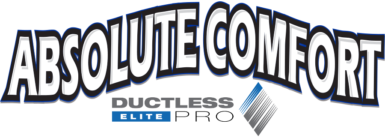Introduction
As Indiana summers heat up and winters chill down, homeowners are looking for reliable ways to stay comfortable without breaking the bank. At Absolute Comfort, we’ve helped countless families in central Indiana switch to geothermal systems for year-round efficiency. Whether you’re dealing with rising energy bills or an aging HVAC system, understanding your options is key.
This post dives into a detailed cost-benefit analysis of geothermal vs traditional AC setups. We’ll cover upfront investments, ongoing energy savings, maintenance needs, and system lifespans—tailored to Indiana’s climate and soil conditions. If you’re a homeowner seriously considering an upgrade, this high-intent guide will help you decide if geothermal is the smart, eco-friendly choice for your home.
Geothermal systems use the earth’s stable temperature for heating and cooling, offering up to 70% energy savings.
As a family-owned company serving central Indiana, we’re passionate about energy-efficient solutions like geothermal installation that promote comfort and sustainability. For more on our geothermal services, visit our geothermal systems page.
Ready to explore geothermal for your Indiana home? Contact us for a free consultation.
Understanding the Systems: Geothermal vs. Traditional AC + Furnace
Geothermal heat pumps transfer heat to and from the ground via underground loops, providing both heating and cooling in one efficient unit. This makes them ideal for Indiana’s varied weather, from humid summers to freezing winters.
In contrast, traditional setups use a separate AC unit for cooling and a furnace (often gas or electric) for heating, relying on fuel combustion or electricity. The key difference? Geothermal is renewable and highly efficient, while traditional systems are more straightforward but less eco-friendly and costlier to run over time.
If you’re weighing options, geothermal shines in long-term performance, especially in central Indiana’s clay-rich soils that support effective loop installations.
Upfront Costs: What to Expect in Indiana
Installing a geothermal system for a typical 2,000 sq ft home in Indiana runs between $20,000 and $35,000, including the underground loops (horizontal for larger lots or vertical for compact spaces).
This higher initial investment covers excavation and specialized equipment.
A traditional AC + furnace system, on the other hand, costs $10,000 to $20,000 on average, with quicker installation.
Why the gap? Geothermal’s ground work adds upfront expense but delivers massive returns through efficiency.
Costs can vary by location—areas like Greenwood and Franklin, with their spacious suburban lots, are perfect for cost-effective horizontal loop installations, potentially lowering digging costs.
Always get a site assessment; our team at Absolute Comfort can provide a tailored quote. Check out our air conditioner installation services for traditional options if geothermal isn’t a fit.
Energy Savings: Long-Term Payoff for Indiana Homeowners
Here’s where geothermal pulls ahead: It can slash heating and cooling bills by 30-70%, translating to annual savings of $1,000 to $2,000 for an average Indiana home, based on local utility rates around $0.12/kWh.
Traditional systems, dependent on fluctuating fuel prices, often cost 20-50% more to operate. With geothermal, you could see a return on investment in just 5-10 years, followed by pure savings.
- Example: In Indiana’s humid summers, geothermal might save 50% on cooling alone.
- Bonus: It shields you from energy price hikes—pair it with smart thermostats for even greater efficiency.
- Pro Tip: For more energy-saving ideas, read our blog on summer AC maintenance tips.
These savings make geothermal a no-brainer for eco-conscious homeowners focused on long-term comfort.
Maintenance and Lifespans: Durability That Lasts
Geothermal systems require minimal maintenance—annual checks are usually enough, averaging $150 per year—since most components are indoors and protected from the elements. The indoor unit lasts 20-25 years, while ground loops endure 50+ years.
Traditional AC and furnace setups need more frequent attention, like filter changes and coil cleanings, costing $300+ annually. Their lifespan? Typically 10-15 years, with outdoor units vulnerable to wear.
Fewer breakdowns and longer life mean less hassle and waste—ideal for busy Indiana families. Our licensed technicians handle furnace maintenance for traditional systems, but geothermal’s reliability often wins out.
Local Incentives Effective Summer 2025: Making Geothermal Affordable
Good news for 2025: Incentives can offset geothermal’s upfront costs significantly.
- Federal: The Energy Efficient Home Improvement Credit offers a 30% tax credit (no cap) for qualified geothermal installations, available through 2032. Learn more at the ENERGY STAR website or IRS page.
- Indiana-Specific: The Indiana Energy Saver Program, launched in May 2025 by the Office of Energy Development, provides rebates for energy-efficient upgrades like geothermal heat pumps. Eligible households can receive upfront discounts, especially for low- to moderate-income families under the HEAR program. Visit in.gov for details and apply at IndianaEnergySaver.com.
- Utility Rebates: Local co-ops like South Central Indiana REMC offer incentives for geothermal systems—up to $2,000 in some cases. Check with your provider, such as AES Indiana or Duke Energy, for similar offers.
Combined, these could save you $10,000+, making geothermal more accessible. Incentives vary, so contact us to verify for your area.
Conclusion
While traditional AC + furnace systems offer lower initial costs, geothermal heat pumps excel in long-term savings, efficiency, and reliability for Indiana homes. With energy bills cut by up to 70%, extended lifespans, and 2025 incentives like the 30% federal tax credit, geothermal is a wise investment for comfort and the planet.
If you’re in Greenwood, Franklin, or anywhere in central Indiana, geothermal could transform your home’s efficiency. At Absolute Comfort, our licensed technicians provide expert geothermal installation with warranties you can trust.
Schedule a free quote today or call us—let’s keep you comfortable year-round!
